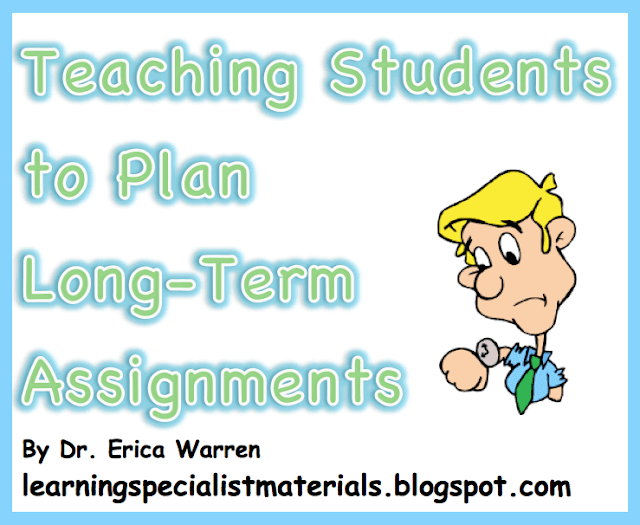This week I wanted to tell you about my online store, Good Sensory Learning. I’m Dr. Erica Warren, and I established this site so I could share all the materials that I have created over the last 20+ years as a learning specialist and educational therapist. When I first began my private practice, Learning to Learn, I had great difficulty finding fun and multisensory materials for my students that were effective and engaging. So back in 2005, I made it my mission to design and distribute high-end, remedial products as well as memorable, motivating lessons that bring delight to learning. If you would like to try a free sampling of my activities , CLICK HERE . How Are the Products Organized at Good Sensory Learning? You can download my Free Printable Catalog or you can browse the site using the grey “search all products” bar in the top right of any page with keywords such as dyslexia, working memory, and executive functioning. What’s more, drop down menus in the red banner allow you t...
Figuring out how to manage long-term projects and assignments can be a challenge without a sequenced and structured approach, and teaching students how to manage these skills is a key element in the learning process. Planning and time management involve executive functioning, a portion of the brain that continues to develop until around 20 years of age. As a result, when teachers assign long-term assignments or projects, it is important for them to also instruct students on how to plot a strategy and break the task into manageable chunks.
Planning the Overall Approach:1. Set and Example: Demonstrate how you plan and manage your own time.
2. Brainstorm: When you announce a new long-term assignment, discuss with the students how they might plan their approach and create deadlines.
3. Group Work: Create opportunities for students to plan their approach in small groups.
4. Offer Incentives: Offer extra credit for students that can make a plan and stick to it.
Planning the Details:
1. Encourage students to estimate and discuss the total time they expect to spend on a project or assignment.
2. Break assignments or projects into manageable tasks with clear expectations.
3. Assign each task a goal, a start date, and a deadline date.
4. Ask students to record goals in a planner and/or on a family calendar.
5. Helps students create checklists and encourage them to check off completed tasks.
2. Break assignments or projects into manageable tasks with clear expectations.
3. Assign each task a goal, a start date, and a deadline date.
4. Ask students to record goals in a planner and/or on a family calendar.
5. Helps students create checklists and encourage them to check off completed tasks.
Pointers:
· Encourage students to schedule the completion of an assignment a few days early just in case they want teacher feedback, time commitments are underestimated or unexpected priorities arise.
· Allow your students to use my Planning Long-Term Assignments Checklist below as a guide throughout the process.
· Encourage students to schedule the completion of an assignment a few days early just in case they want teacher feedback, time commitments are underestimated or unexpected priorities arise.
· Allow your students to use my Planning Long-Term Assignments Checklist below as a guide throughout the process.

To learn more about teaching executive functioning skills and acquiring other helpful learning tools, consider purchasing Planning TimeManagement and Organization for Success. This publication offers methods and materials that guide, and support students in the areas of learning strategies, time management, planning and organization (executive functioning skills). It includes agendas, questionnaires, checklists, as well as graphic organizers. You will also find advice and handouts for reading, math, memory, motivation, setting priorities and incentives programs. These materials were created over a ten-year period for my private practice. What’s more, the materials accommodate learners of all ages from elementary to college. Finally, I offer a free sample assessment from the publication too, as well as a free video on executive functioning. To Access this Click Here.
Cheers, Dr. Erica Warren
Dr. Erica Warren is the author, illustrator, and publisher of multisensory educational materials at Good Sensory Learning and Dyslexia Materials. She is also the director of Learning to Learn and Learning Specialist Courses.
· Blog: https://learningspecialistmaterials.blogspot.com/
· YouTube Channel: https://www.youtube.com/user/warrenerica1
· Podcast: https://godyslexia.com/
· Store: http://www.Goodsensorylearning.com/ & www.dyslexiamaterials.com
· Courses: http://www.learningspecialistcourses.com/
· Newsletter Sign-up: https://app.convertkit.com/landing_pages/69400
· Blog: https://learningspecialistmaterials.blogspot.com/
· YouTube Channel: https://www.youtube.com/user/warrenerica1
· Podcast: https://godyslexia.com/
· Store: http://www.Goodsensorylearning.com/ & www.dyslexiamaterials.com
· Courses: http://www.learningspecialistcourses.com/
· Newsletter Sign-up: https://app.convertkit.com/landing_pages/69400


Comments
Post a Comment